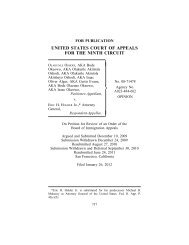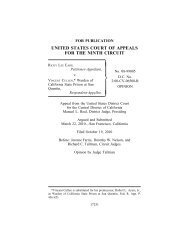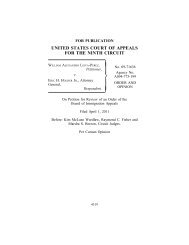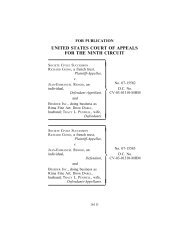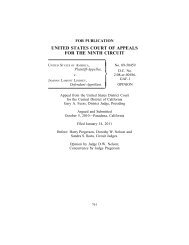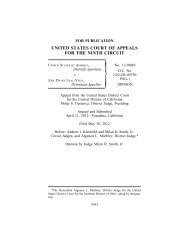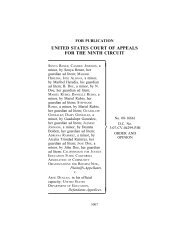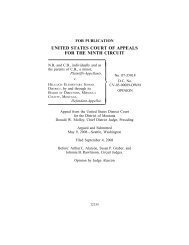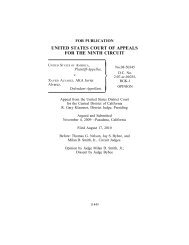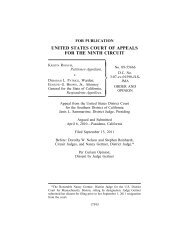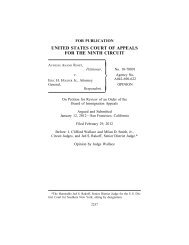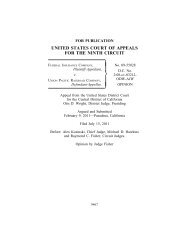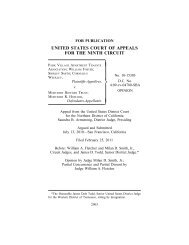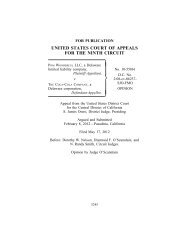UNITED STATES COURT OF APPEALS FOR THE NINTH CIRCUIT
UNITED STATES COURT OF APPEALS FOR THE NINTH CIRCUIT
UNITED STATES COURT OF APPEALS FOR THE NINTH CIRCUIT
Create successful ePaper yourself
Turn your PDF publications into a flip-book with our unique Google optimized e-Paper software.
9742 PAYNE v. PENINSULA SCHOOL DISTRICT<br />
not be expanded to account for the parties’ litigation conduct;<br />
a claim-processing rule, on the other hand, even if unalterable<br />
on a party’s application, can nonetheless be forfeited if the<br />
party asserting the rule waits too long to raise the point.”);<br />
Jacobo Castillo, 496 F.3d at 952 (“Defects in procedural rules<br />
may be waived or forfeited by parties who fail to object properly,<br />
whereas defects in our subject-matter jurisdiction go to<br />
the inherent power of the court and cannot be waived or forfeited.”<br />
(footnote omitted)).<br />
[3] Second, nothing in the relevant jurisdictional statutes<br />
requires exhaustion under the IDEA. Section 1415(l) provides<br />
that if the plaintiff is “seeking relief that is also available<br />
under [the IDEA], the procedures under [20 U.S.C. § 1415(f),<br />
(g)] shall be exhausted to the same extent as would be<br />
required had the action been brought under this subchapter.”<br />
Section 1415(i) describes the actions that can be brought<br />
under the IDEA. A party who is “aggrieved by the findings<br />
and decision” made under the IDEA’s procedures has “the<br />
right to bring a civil action . . . in any State court of competent<br />
jurisdiction or in a district court of the United States, without<br />
regard to the amount in controversy.” 20 U.S.C.<br />
§ 1415(i)(2)(A). There is no restriction in this section on the<br />
subject matter jurisdiction of the federal courts. The only provision<br />
that arguably affects federal subject matter jurisdiction<br />
is the provision specifying that there is no amount-incontroversy<br />
requirement, and it appears to expand, rather than<br />
contract, federal jurisdiction. More to the point, the section<br />
expressly provides that suit may be brought in state or federal<br />
courts. As state courts are courts of general subject matter<br />
jurisdiction, it is hard to think that Congress would permit<br />
IDEA suits to be brought in state court but at the same time<br />
restrict the subject matter jurisdiction of the federal courts.<br />
Without clearer instruction from Congress, we are reluctant to<br />
infer such a restriction where Congress has not made it<br />
explicit. See Henderson, 131 S. Ct. at 1203 (“[Courts should]<br />
look to see if there is any ‘clear’ indication that Congress<br />
wanted the rule to be ‘jurisdictional.’ ”).



